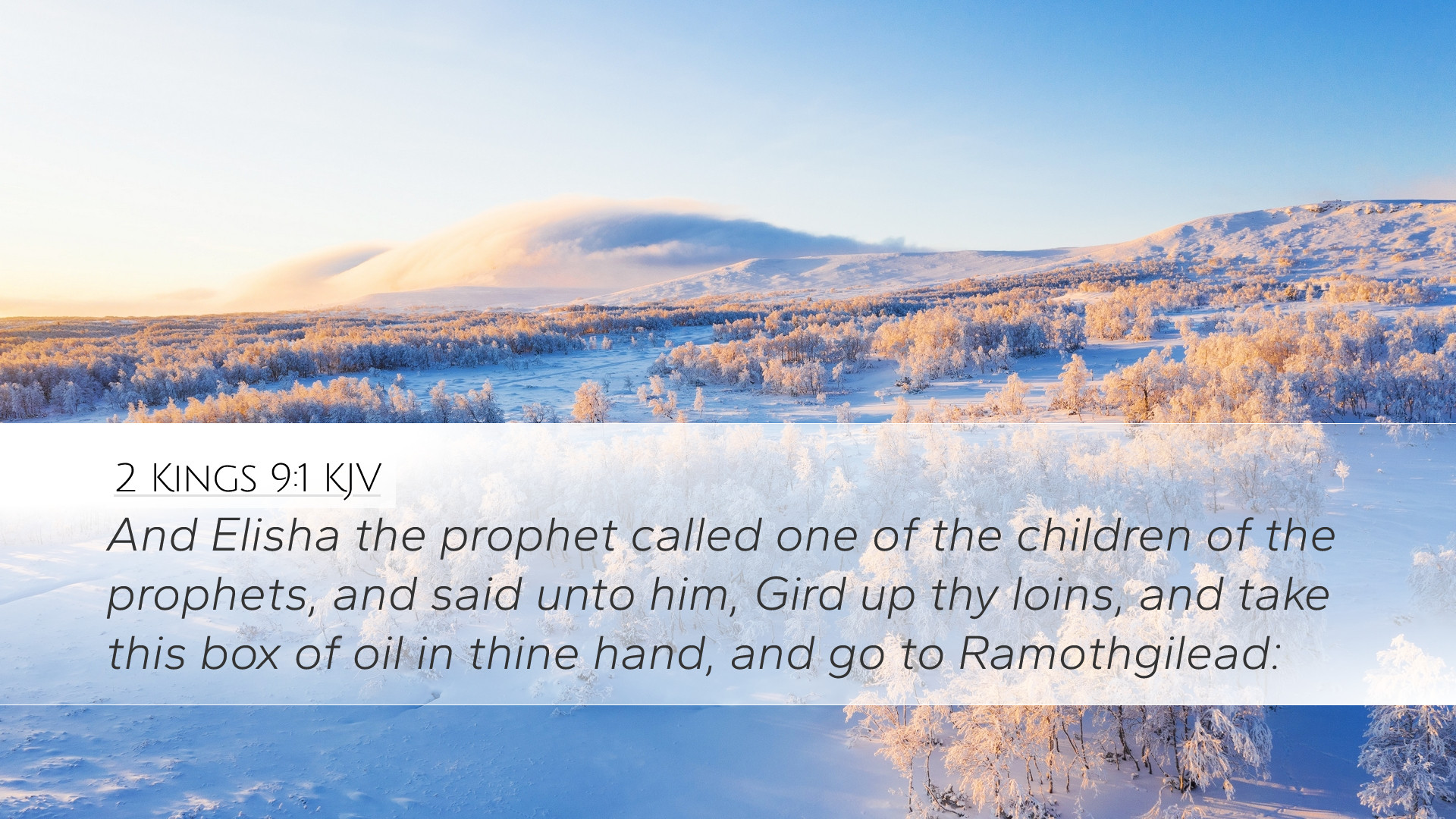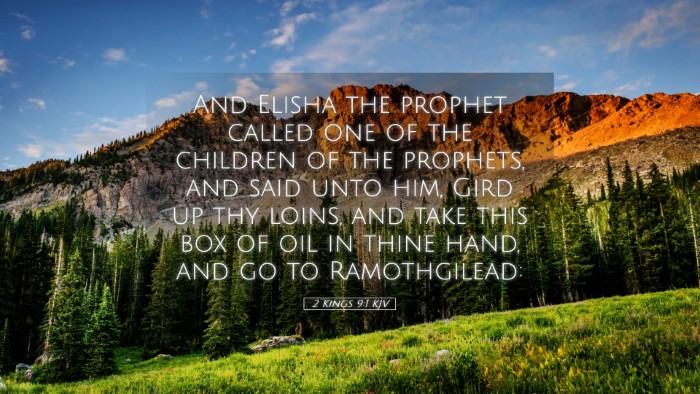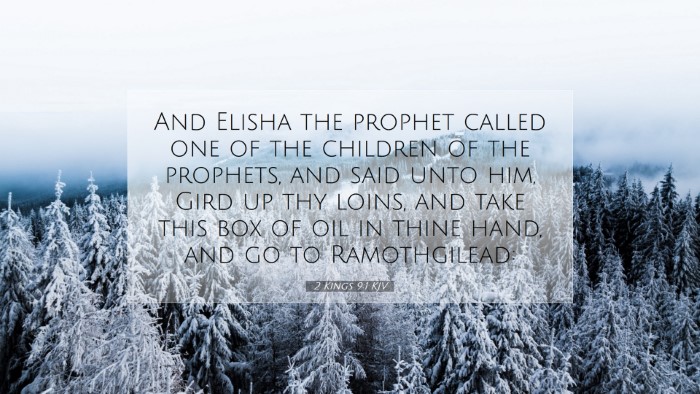Commentary on 2 Kings 9:1
Introduction
The passage of 2 Kings 9:1 presents a critical point in the narrative of the Old Testament, focusing on the anointing of Jehu as king over Israel. This event marks a significant turning point for the nation, as it initiates a divinely orchestrated change in leadership that is meant to fulfill God's judgement against the house of Ahab. This commentary examines the depth of this verse through insights from public domain sources, including Matthew Henry, Albert Barnes, and Adam Clarke.
Verse Context and Overview
2 Kings 9:1 states: "And Elisha the prophet called one of the children of the prophets, and said unto him, Gird up thy loins, and take this box of oil in thine hand, and go to Ramoth-gilead."
Divine Commission
This verse illustrates Elisha's role as a prophet in Israel and God's method of appointing new leadership. Elisha, following the prophetic tradition and authority bestowed upon him, demonstrates that the initiation of such serious roles as kingship comes not through political maneuvering but through divine appointment.
Prophetic Authority
As noted by Matthew Henry, the command given to Elisha reflects the seriousness of prophetic authority in Israel. The term "gird up thy loins" signifies readiness and preparation for an important task. Elisha prepares to send a messenger—a child of the prophets—indicating the importance of the task at hand. This emphasizes the urgency and weight of the prophetic message that is about to unfold.
Preparation for Action
Albert Barnes elaborates on the phrase "gird up thy loins," which was a cultural idiom referring to the act of preparing oneself for urgent action. It signifies that the messenger is not only delivering a message but also engaging in an act that could lead to significant consequences for Israel. The act of taking "this box of oil" symbolizes the anointing process, which is a tangible representation of God's choosing and empowerment.
The Significance of Oil
The box of oil carries a great symbolic weight throughout Scripture. Adam Clarke highlights that the anointing oil in biblical times was not merely a physical substance but a spiritual representation of the Holy Spirit's empowerment. This moment of anointing not only bestows kingship upon Jehu but also signifies God's presence and endorsement.
God’s Sovereignty
The action of anointing serves to remind readers that God is sovereign over the affairs of mankind. As discussed by Matthew Henry, God raises and lowers rulers according to His divine will and purposes. The anointing of Jehu symbolizes the shift in power necessary to fulfill God's judgment upon the house of Ahab for their idolatry and sin.
The Messenger's Journey
The task given to the messenger represents the calling and commissioning of those who serve God. The child of the prophets is tasked with traveling to Ramoth-gilead, a place fraught with danger due to the ongoing conflicts. This indicates the importance and risk associated with carrying out God's orders, a theme prevalent throughout scripture.
Courage in Prophetic Duty
Albert Barnes emphasizes the courage needed to undertake such a mission. The unnamed messenger's willingness to obey the directive from Elisha serves as an example to future generations of believers and rulers alike. The call to action is often accompanied by peril, yet the fulfillment of divine purposes requires stepping out in faith, ensuring that God's message is delivered.
The Implications of Jehu's Anointing
Jehu's anointing is foundational for understanding the political and spiritual landscape of Israel in the following chapters. Through Jehu, God will execute judgment upon Ahab's lineage, illustrating the principle that divine justice prevails despite human actions and plans.
Judgment and Restoration
The subsequent events in 2 Kings demonstrate the profound impact of this anointing. Adam Clarke discusses how Jehu's zealous actions lead to the eradication of Baal worship in Israel, reflecting the fulfillment of God's promise of restoration. This story serves as an exhortation to all leaders, reminding them that their authority is subject to God's overarching sovereignty.
Conclusion
2 Kings 9:1 serves as a poignant reminder of the relationship between God's sovereignty and human leadership. Through the anointing of Jehu, we witness a divine intervention meant to realign Israel with God's covenant purposes. The urgency and significance reflected in this verse resonate through the ages, encouraging pastors, students, and theologians to recognize the importance of divine calling, readiness, and the profound implications of prophetic actions in the life of believers.


